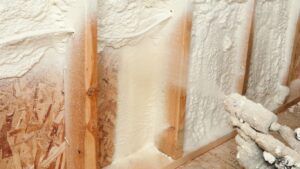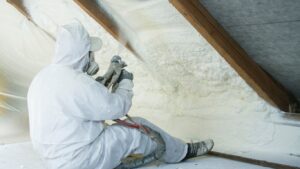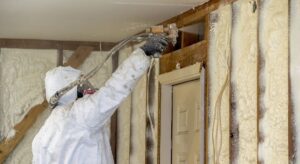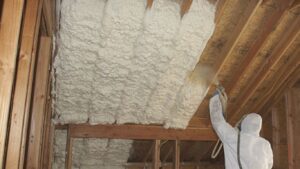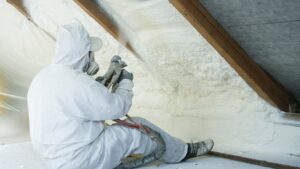If you’re a homeowner in Odessa and you’re thinking about insulating your home, residential spray foam insulation could be the answer you’ve been searching for. However, before you jump into this type of insulation, there are some important details that you should be aware of. In this blog post, we will discuss the advantages of residential spray foam insulation, its functioning process, and the factors to take into account before making a decision. So, if you’re interested in enhancing your home’s energy efficiency and comfort levels, continue reading to discover all the essential information about residential spray foam insulation.
What is Spray Foam Insulation?
Spray foam insulation creates a tight seal, reducing energy costs while providing excellent moisture and vapor insulation. It can be applied to various surfaces like walls, attics, and crawl spaces and customized to meet specific needs. Professional installation ensures optimal performance. Upgrade your home with this cost-effective solution for improved energy efficiency and comfort.
The Science Behind Spray Foam Insulation
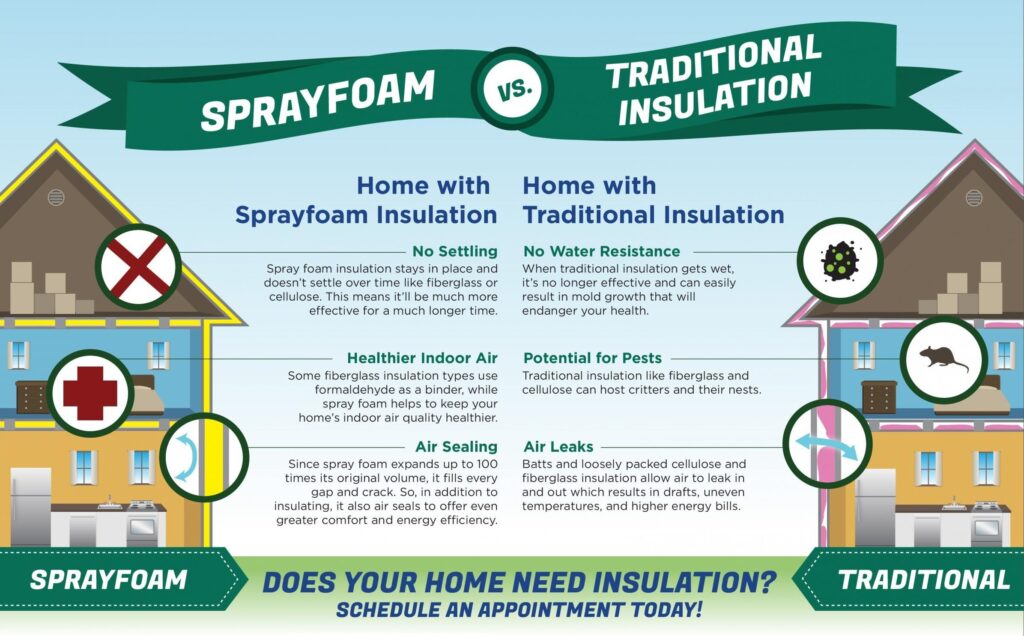
Spray foam insulation consists of polyurethane foam and isocyanate. These components react and expand when mixed, creating a foam that adheres to surfaces. The expanding nature of spray foam helps fill gaps, cracks, and cavities, providing a seamless air barrier. The curing process takes 24 to 48 hours, resulting in a durable and long-lasting insulation barrier.
Types of Spray Foam Insulation
When it comes to residential spray foam insulation, there are different types to choose from. Open-cell spray foam insulation is a cost-effective option that provides good insulation and soundproofing. On the other hand, closed-cell spray foam insulation is denser and offers higher R-values for increased energy efficiency. Depending on your specific needs and the area of application, you can also consider low-density, medium-density, or high-density spray foam insulation. Each type has its benefits and is suitable for different purposes.
Cost Factors for Residential Spray Foam Insulation
The cost of residential spray foam insulation depends on various factors, including the type of foam used, project size and complexity, location-specific expenses, labor costs, and additional factors like job site access and removal of existing insulation. Considering all these factors will give you a better idea of the overall cost.
Type of Foam Used
Choosing the correct type of foam is crucial for residential spray foam insulation. You have two options: open-cell and closed-cell spray foam. Open-cell foam is more affordable, while closed-cell foam offers higher R-values and superior moisture resistance. Consider your insulation needs and budget when making a decision. Both foams provide excellent insulation and air-sealing properties, resulting in a comfortable and energy-efficient home.
Size and Complexity of Insulation Project
Residential spray foam insulation cost depends on the size and complexity of the project. Larger areas and hard-to-reach spots require more materials and labor, resulting in higher costs. Customized insulation needs may also need additional materials and labor. It is essential to conduct a proper assessment before planning to estimate the cost accurately.
Location Specific Expenses
Installing residential spray foam insulation comes with location-specific expenses. Permits, inspections, and transportation of materials can incur additional costs. Specialized equipment or extra labor may be required for challenging terrains or high-rise buildings. Local building codes and regulations also impact the installation process and cost. Consulting with local authorities and professionals can provide a better understanding of these expenses.
Labor Costs
Regarding residential spray foam insulation, professional installation is highly recommended for optimal results and safety. Labor costs include the expertise and experience of the installer, as well as the complexity of the project and the time required for installation. Hiring a reputable and experienced installer ensures proper application and long-term performance. Evaluating multiple quotes and considering the installer’s qualifications is essential.
Comparing DIY and Professional Spray Foam Insulation Installation
When it comes to residential spray foam insulation, there are two options to consider: DIY installation or hiring a professional. While DIY installation may initially save money, it can lead to costly repairs if not done correctly. Professional installers have the expertise to ensure proper application and address potential issues. Additionally, professionals ensure compliance with building codes and regulations. Prioritize energy efficiency and long-term cost savings by choosing professional installation.
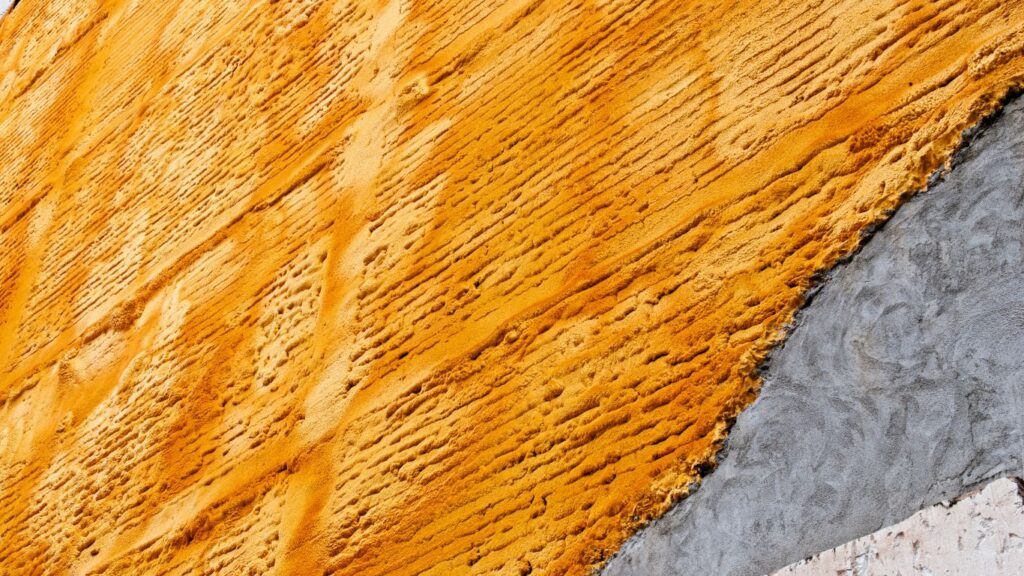
Advantages of Professional Installation
Regarding residential spray foam insulation, hiring professionals for installation offers several advantages. Expert installers have the necessary equipment and knowledge to achieve a consistent thickness of insulation throughout your home. This ensures maximum energy efficiency and minimizes air leakage, thanks to the airtight seal provided by professional installation. Additionally, professionals can identify and address potential issues that may affect the insulation’s performance, saving you time and ensuring the job is done correctly the first time. Plus, they often offer warranties for their workmanship.
Considerations for DIY Installation
When considering DIY installation of residential spray foam insulation, it is essential to prioritize safety. Ensure you have the proper protective gear, including clothing and respiratory protection. Accurate measurement and careful mixing of the components are crucial for successful DIY installation. While DIY may work for small areas or touch-ups, larger projects may require professional expertise for optimal insulation and energy efficiency. Remember to maintain proper ventilation during installation to minimize exposure to off-gassing.
Factors Impacting the Cost of Spray Foam Insulation
The overall cost of spray foam insulation can be influenced by various factors. One key factor is the size of the area that needs to be insulated. The larger the space, the more materials and labor will be required, leading to a higher cost. Another factor is the type and thickness of spray foam insulation chosen. Different types of insulation have varying costs, and thicker insulation generally comes at a higher price.
The condition of the existing insulation and any necessary preparation work can also impact the cost. If there is old insulation that needs to be removed or if there are repairs needed before the new insulation can be installed, this will add to the overall cost. Additionally, the location and accessibility of the area to be insulated can influence the price. Hard-to-reach or complex areas may require extra effort, which can result in higher costs.
New Construction vs. Insulating an Existing Home
Residential spray foam insulation is different for new construction and existing homes. New homes can have a continuous insulation system, which is more energy efficient. Insulating existing homes needs more preparation work, like removing old insulation and addressing air leakage points. Retrofitting may cost more, but it’s a worthwhile investment compared to insulating new homes with spray foam.
Mold Removal and Spray Foam Insulation
Proper mold remediation is crucial before installing spray foam insulation. This insulation creates an airtight seal, reducing moisture infiltration and preventing future mold growth. If mold is found post-installation, the affected insulation should be removed and the underlying cause addressed. Regular maintenance, moisture control, and proper ventilation are essential to prevent mold in homes with spray foam insulation.
Hiring a Spray Foam Insulation Professional
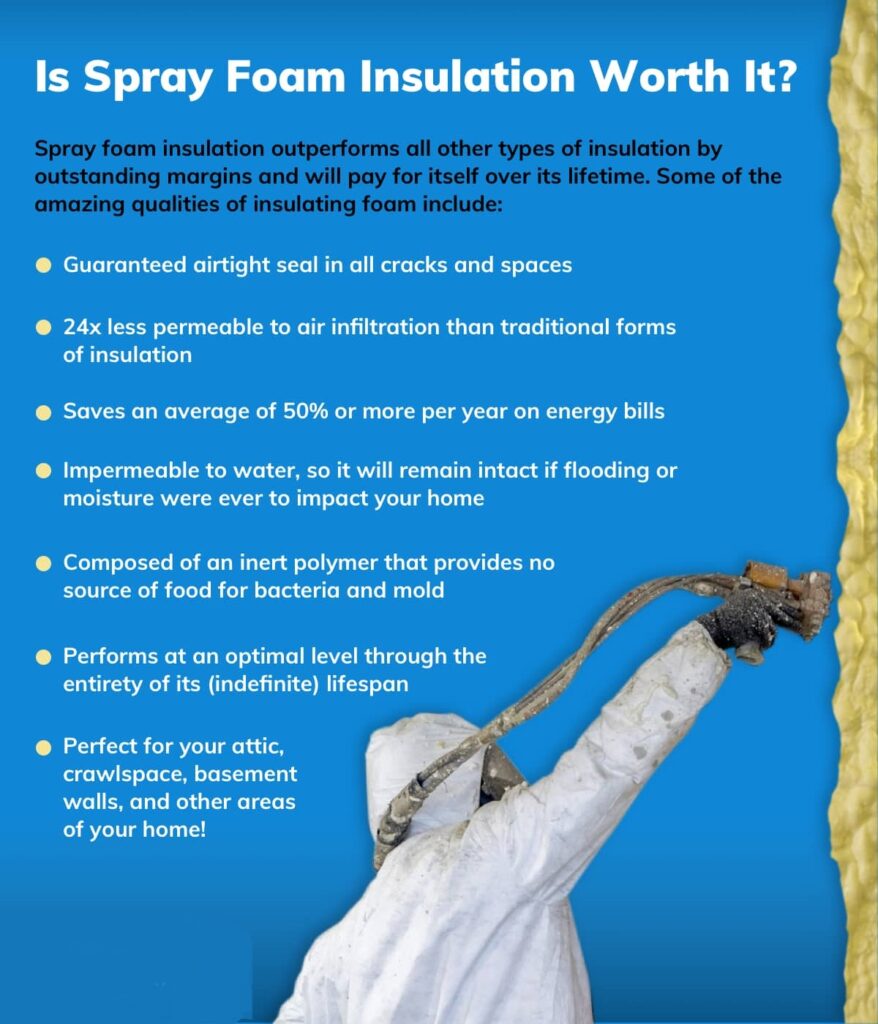
When it comes to residential spray foam insulation, hiring a professional is crucial. They bring expertise in proper installation techniques and safety protocols. Professionals can handle complex projects, offering solutions for unique challenges. They guide you in selecting the right type and thickness of insulation, assess your home’s needs, and provide accurate cost estimates. By hiring a professional, you save time and ensure the job is done correctly.
What to Look for in a Professional Installer
When hiring a professional installer for your residential spray foam insulation project, there are a few key things to consider. First, verify that the installer has the necessary certifications and licenses to perform the installation. Second, check for references and reviews from previous customers to ensure their work is of high quality. Inquire about the experience and training of the installer and their crew members. Ask about the warranty provided for the installation and request a detailed written estimate that includes the scope of work and cost breakdown.
Is Spray Foam Insulation Worth the Investment?
Spray foam insulation is worth the investment. It offers superior energy efficiency, helps reduce energy bills, acts as a moisture barrier, provides excellent thermal insulation, and lasts for the lifetime of your home. With these benefits, it’s a smart choice for homeowners looking to improve comfort and save on energy costs.
Reviewing Energy Efficiency and Return on Investment
Spray foam insulation, acting as a continuous insulation and air barrier, reduces heat transfer and energy loss. Homeowners can expect significant savings on energy costs with this insulation option. The initial investment in spray foam insulation can be recouped through lower energy bills over time. Additionally, it creates a more comfortable indoor environment with fewer drafts and temperature fluctuations. Given its long-term energy savings, spray foam insulation is considered a valuable home improvement investment.
How Spray Foam Insulation Improves Home Comfort and Energy Efficiency
Spray foam insulation is a highly effective way to improve home comfort and energy efficiency. By creating an airtight seal, spray foam insulation prevents drafts and air leakage, resulting in a more comfortable indoor environment. It also helps to regulate temperature, keeping the home cooler in the summer and warmer in the winter. In terms of energy efficiency, spray foam insulation is unmatched. Its superior insulating properties reduce heat transfer, lowering heating and cooling costs significantly. This type of insulation also minimizes moisture infiltration, preventing mold growth and potential damage to the home’s structure. With its ability to improve comfort and lower energy bills, spray foam insulation is an excellent investment for homeowners looking to enhance their living spaces while reducing their carbon footprint.
Conclusion
Residential spray foam insulation is great for homeowners who want to make their homes more energy-efficient and comfortable. Spray foam can seal air leaks, reduce noise, and lower energy bills. It also makes your living space more comfortable throughout the year. Moreover, it helps to reduce your carbon footprint.
At Odessa Spray Foam Solution Inc., we offer spray foam insulation services to homeowners. Our team has the expertise to handle any insulation project, no matter how big or small. If you want to upgrade your house’s insulation or construct a new home, we can help. Our professional team is committed to assisting you in making your home more energy-efficient and comfortable with our residential spray foam insulation services. Contact us today for a free consultation.

